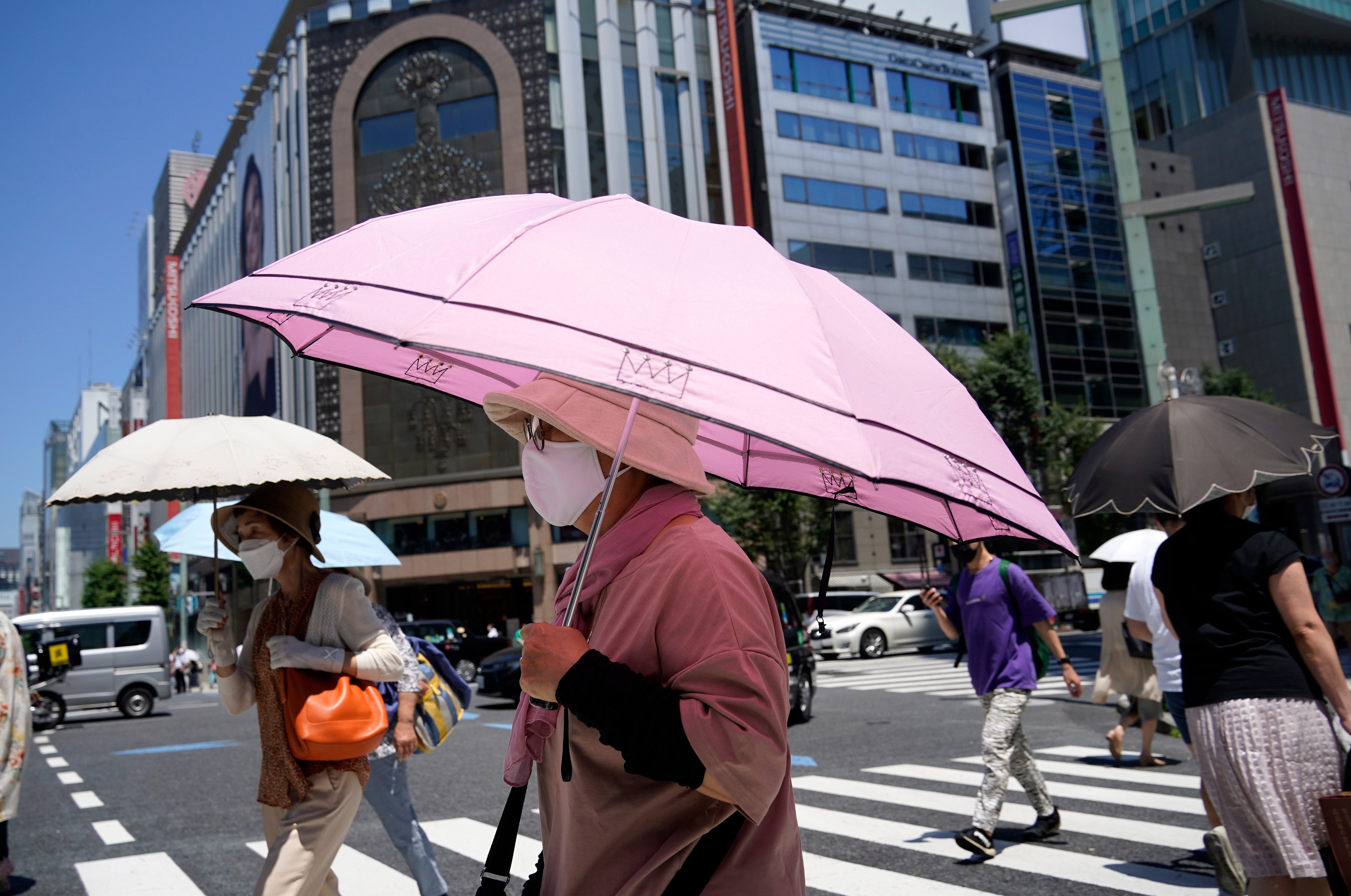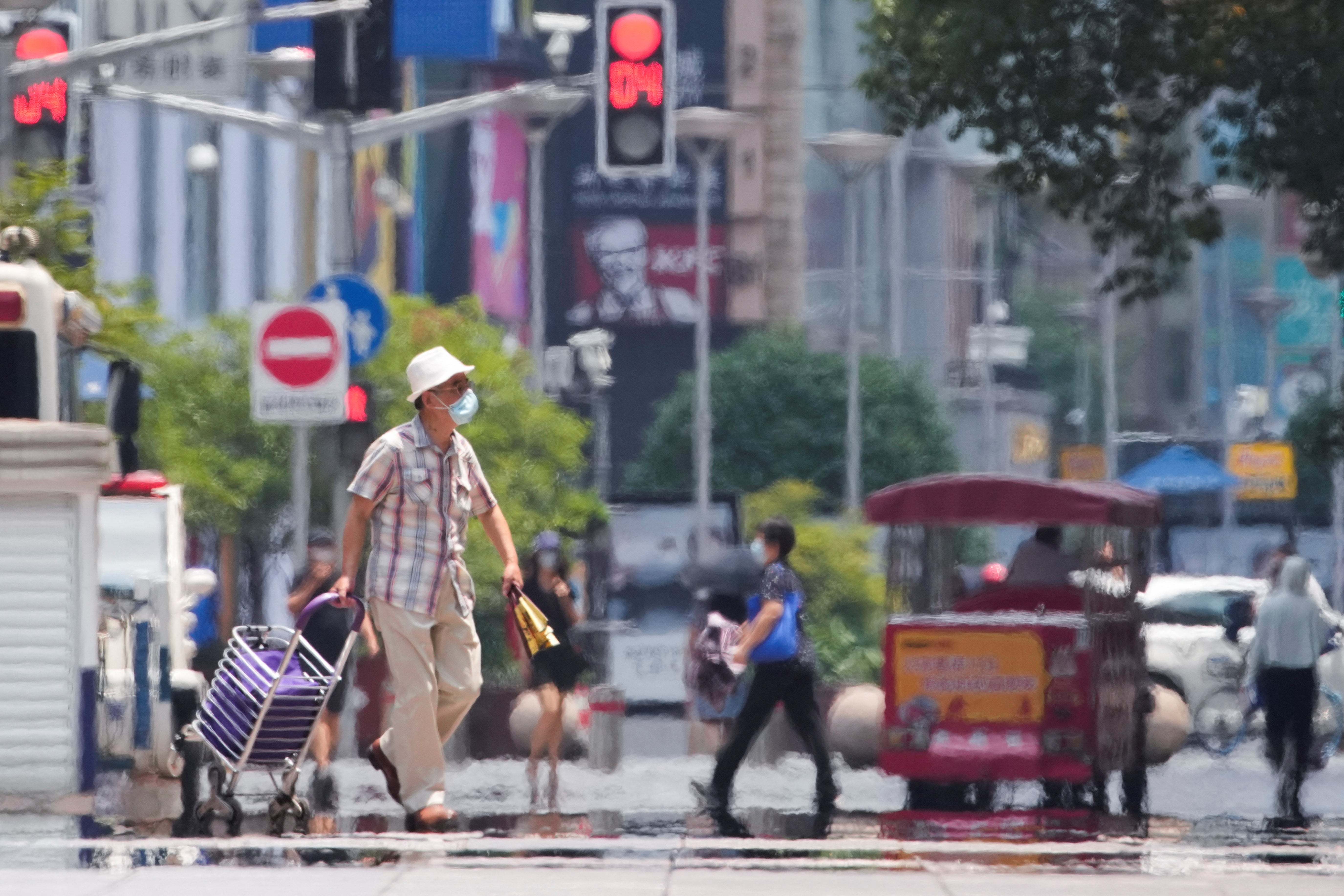Hotter nights because of climate change to increase risk of death, study finds
Researchers warn vulnerable people and those on low incomes likely to be at more risk

Your support helps us to tell the story
From reproductive rights to climate change to Big Tech, The Independent is on the ground when the story is developing. Whether it's investigating the financials of Elon Musk's pro-Trump PAC or producing our latest documentary, 'The A Word', which shines a light on the American women fighting for reproductive rights, we know how important it is to parse out the facts from the messaging.
At such a critical moment in US history, we need reporters on the ground. Your donation allows us to keep sending journalists to speak to both sides of the story.
The Independent is trusted by Americans across the entire political spectrum. And unlike many other quality news outlets, we choose not to lock Americans out of our reporting and analysis with paywalls. We believe quality journalism should be available to everyone, paid for by those who can afford it.
Your support makes all the difference.Hotter overnight temperatures caused by climate change could increase the global death rate due to excessive heat by up to 60 per cent by 2100, a new study claims.
Disrupted sleep during sweltering nights could increase people’s risk of immune system damage, heart disease, chronic illnesses, inflammation, and mental health problems, researchers say.
By the year 2090, the average global nighttime temperature would nearly double from 20.4C (68.7F) to 39.7C (103.5F), they predicted.
But the scientists urged people to be “cautious” in extrapolating the results beyond some parts of east Asia as they only examined data from 28 cities in China, Japan and South Korea.
The international study featured research from the UNC Gillings School of Global Public Health and was co-authored by researchers in China, Germany, Japan, South Korea, and the US.
It’s the first study to estimate how much hotter nights would increase the risk of heat-linked mortality.

Global warming could have a troubling impact even if countries comply with restrictions under the Paris Climate Agreement, researchers said.
The team estimated the excess heat mortality rate in the 28 cities between 1980 and 2015. It then applied the rate to two climate change modelling scenarios that aligned with carbon-reduction scenarios adapted by the respective national governments.
Using this model, the team estimated that the risk of death as a result of excessively hot nights would increase nearly six-fold between 2016 and 2100.
Climate scientist Dr Yuqiang Zhang, at the Gillings School, said that the potentially higher risks of hotter nights “were frequently neglected” in studies that have focused mainly on daytime heat.

Dr Zhang added: “In our study, we found that the occurrences of hot night excess (HNE) are projected to occur more rapidly than the daily mean temperature changes.
“The frequency and mean intensity of hot nights would increase more than 30 per cent and 60 per cent by the 2100s, respectively, compared with less than 20 per cent increase for the daily mean temperature.”
Dr Zhang said that researchers are trying to “extend the analysis to a global dataset” as data from only three countries were analysed.
Dr Haidong Kan, professor at Fudan University in China and the study’s corresponding author, said that governments and local authorities should take into account the impact that nighttime heat would have on health.
Dr Kan added: “To combat the health risk raised by the temperature increases from climate change, we should design efficient ways to help people adapt.
“Locally, heat during the night should be taken into account when designing the future heatwave warning system, especially for vulnerable populations and low-income communities who may not be able to afford the additional expense of air conditioning.
“Also, stronger mitigation strategies, including global collaborations, should be considered to reduce future impacts of warming.”
The study has been published in The Lancet Planetary Health.



Join our commenting forum
Join thought-provoking conversations, follow other Independent readers and see their replies
Comments